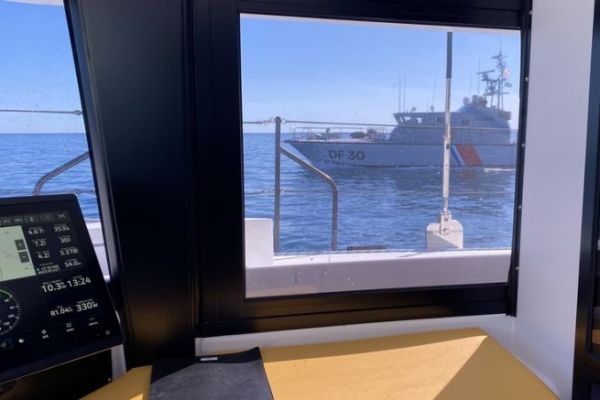The case reported by Jean-Paul Bahuaud, a yachting professional in the French West Indies, highlights a little-known legal and customs situation, which could nonetheless affect many ocean-going sailors. Based on the case of a sailboat seized in La Rochelle, this article details the issues at stake, the regulatory basis, and the potential consequences for European yachtsmen.
The case of a sailboat seized in La Rochelle after a circumnavigation
A Belgian-flagged boat was arrested on its return to France. The yacht in question was bought new in Belgium, VAT paid, and had belonged to two successive European yachtsmen. After a round-the-world trip lasting several years, the vessel had spent the summer in Spain, its first European port of call on its return from the West Indies. On arrival in La Rochelle, French customs seized the vessel, deeming it to have been imported without declaration.
The reason given: "Undeclared importation of non-prohibited merchandise", with reference to articles 153, 154 and 203 of the Union Code.
Article 203 of the EU Customs Code: a disputed application
According to Customs, a vessel leaving European waters would lose its Community status. Its return, even without any commercial operation or change of status, would be treated as a reimport subject to VAT, unless its owner remained identical and the return took place within three years.
In this case, even though no customs exit operations had been recorded, the agents strictly applied article 203 of the CDU, reserved for conventional goods. A logic ill-suited to the reality of ocean-going yachting.
A regulatory loophole concerning the status of pleasure boats in long-distance navigation
European law does not provide for a specific status for pleasure boats on long voyages. This legal loophole allows an interpretation by analogy with industrial goods. However, unlike a container, a boat is not intended to be stored or exchanged commercially on return.
In fact, many âeuro member states, such as Spain and Portugal âeuros, do not apply this strict interpretation. No reimportation procedure is required in similar cases.
Serious implications for the second-hand market and unit values
If we follow French customs logic, any unit that has left European waters loses its Community status. A resale in Europe would involve new taxation, even if VAT had originally been paid.
This position could significantly devalue used boats that have sailed outside the EU, slowing their return to continental markets, particularly for refits or resale. If the new owner runs the risk of paying VAT, he can of course ask for it to be included in the purchase price.
A call for clarification of the tax status of pleasure boats
For Jean-Paul Bahuaud and other professionals, the challenge is to establish a clear status for offshore pleasure boats. According to him, "the fact that a ship touches a port outside the EU should not result in a loss of Community quality" . It calls for the mobilization of federations and representative bodies to bring about changes in European law.

 /
/ 








